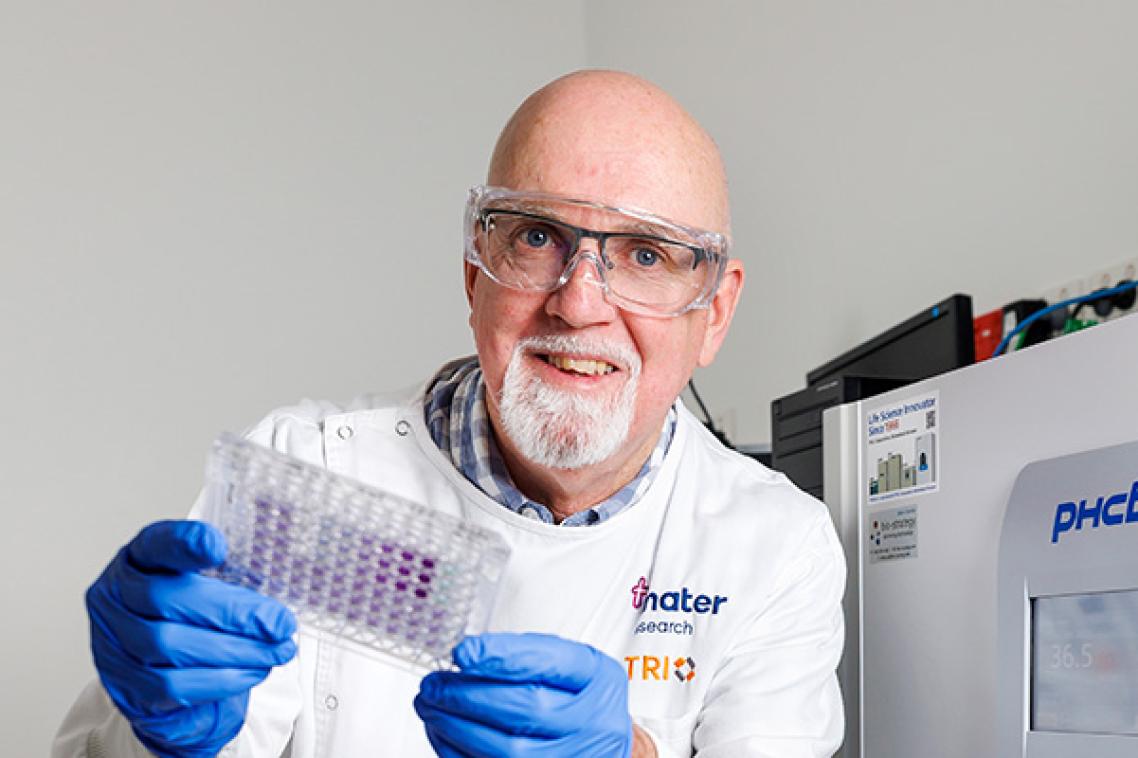Technology shines a light on better bladder cancer detection

A new diagnostic and treatment approach for bladder cancer will undergo a clinical trial in Queensland.
OncoStrike Biopharma, a startup founded on technology developed by Mater Research and University of Queensland Honorary Professor John Hooper, has received a $950,500 CUREator grant through the Medical Research Future Fund's Early-Stage Translation and Commercialisation Support (ESTAC) funding.
Around 570,000 people are diagnosed with bladder cancer worldwide each year and a significant proportion develop an advanced and aggressive form of the disease.
Professor Hooper said the new technology is a theranostic, combining diagnostic imaging with targeted treatment.
“It will make cancerous tumour cells more easily identifiable on a scan to inform, target and personalise treatments,” he said.
“We hope that the imaging will successfully detect bladder cancer by homing in on a particular protein.
“This protein is also present in other cancers including ovarian, breast, colorectal, prostate and lung cancer.
“Positive results from the bladder cancer imaging trial could lead to new trials and treatments for bladder and other cancers.”
Professor Hooper, who has been working on the protein since 2001, codeveloped the technology with the Scripps Research Institute and CSIRO.
Other collaborators include Royal Brisbane and Women’s Hospital (RBWH) Nuclear Medicine Physician Associate Professor Paul Thomas, RBWH Urologist Associate Professor Matt Roberts, Mater Cancer Care Centre Medical Oncologist Dr Niara Oliveira, Mater Pathologist Dr Admire Matsika and Princess Alexandra Hospital Urologist Professor Ian Vela.
Dr Roberts said current scanning and imaging methods to detect bladder cancer were limited and outdated.
“The protein target of this study could act like a homing beacon for bladder cancer so that doctors and patients can see it more easily and treat it,” he said.
“Our hope is that the research will lead to a new wave of treatment options for bladder cancer patients, who traditionally have a poor prognosis.”
The CUREator scheme is also supporting Frontier Inflammasome Therapeutics with $500,000 to continue its preclinical work developing a first-in-class potential therapy to treat debilitating inflammatory conditions that do not currently have effective treatment options.
This work is being undertaken at UniQuest’s drug discovery incubator, the Queensland Emory Drug Discovery Initiative in collaboration with Professor Kate Schroder’s Inflammasome Lab at UQ’s Institute for Molecular Bioscience.
Both startups are supported by UQ’s commercialisation company, UniQuest.
Brandon Biocatalyst has supported 42 clinical and preclinical stage companies from the CUREator ESTAC stream since 2022 to progress promising Australian initiatives with commercial potential.
Related articles

Sunlight-powered breakthrough turns methane into valuable ethylene

Australia needs doctors – so why are hundreds of qualified international physicians unable to work?
Media contact
UQ Communications
communications@uq.edu.au
+61 429 056 139
